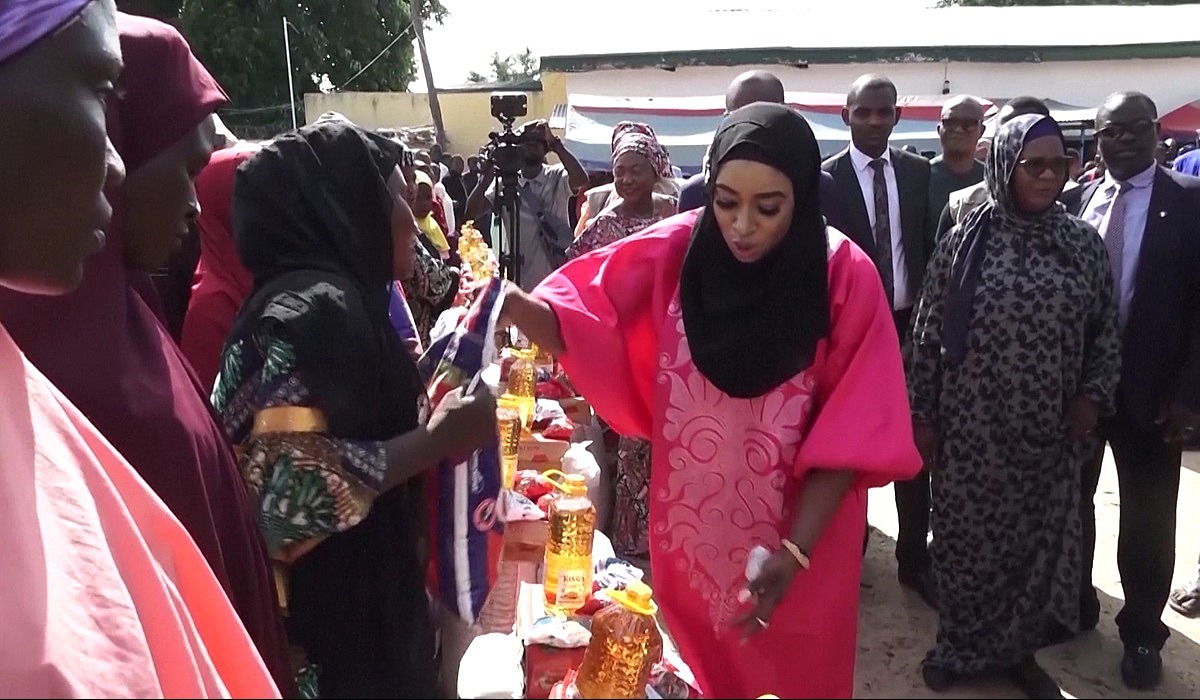Image credit, Tesem Akende CGTN
Nigerian President Bola Tinubu has taken decisive action by suspending the Minister of Humanitarian Affairs, Betta Edu, amidst serious allegations of financial impropriety. Tinubu has ordered a comprehensive investigation to scrutinize the claims and shed light on the extent of Minister involvement in the allegations.
Edu assumed office in August last year, part of the new wave of leadership committed to steering Nigeria towards progress and development. However, recent accusations have tarnished her tenure, accusing her of orchestrating the diversion of over $600,000 from public funds into a private bank account – a direct violation of governmental financial regulations.
This suspension comes at a time when the country is already grappling with allegations of corruption within its political ranks. Sadiya Umar Farouq, the Minister of Pioneer and Humanitarian Affairs preceding Betta Edu, is also under investigation for purportedly misusing $42 million of public funds. The simultaneous scrutiny of two ministers from the same department raises questions about the systemic challenges within the Nigerian government.
Nigeria, like many nations, is no stranger to allegations of corruption involving elected officials. The country has a historical backdrop of questionable decisions, both in the electoral process and financial dealings, highlighting the challenges faced in maintaining transparency and accountability within its political landscape. The very corruption that can be instrumental in securing election victories often rears its head later, casting a shadow on the elected officials’ ability to fulfill their duties and uphold their oath of office.
It is essential to remember that every individual accused of corruption, including Minister Betta Edu and her predecessor, Pioneer Sadiya Umar Farouq, is presumed innocent until proven guilty in a court of law. While these allegations are troubling, it is crucial to afford everyone the opportunity to present their case and provide evidence in their defense.
The people of Nigeria deserve a government free from corruption, one that is dedicated to improving the lives of its citizens. As this investigation unfolds, the call for judicial diligence becomes paramount. The judicial system must ensure a fair and impartial examination of the evidence, holding individuals accountable for any wrongdoing, and restoring public trust in the government. In the pursuit of justice, let it be known that everyone, regardless of their position, deserves a fair chance to have their day in court.









